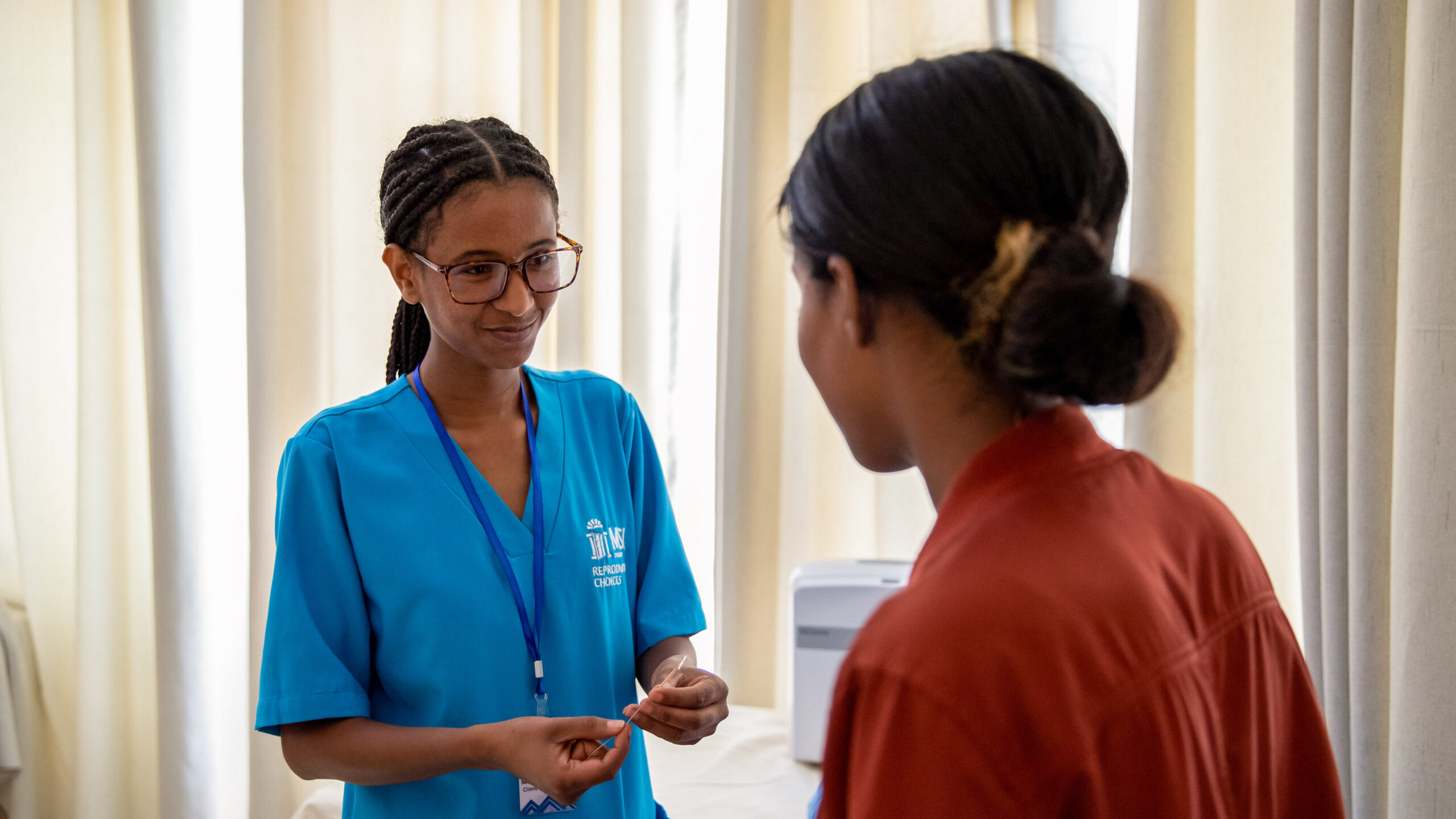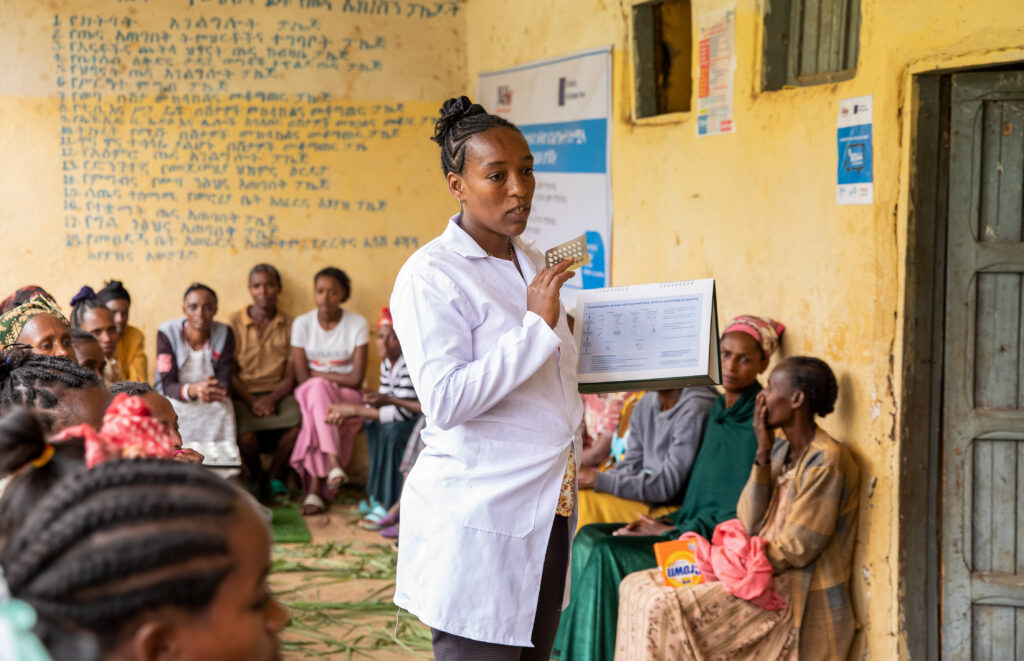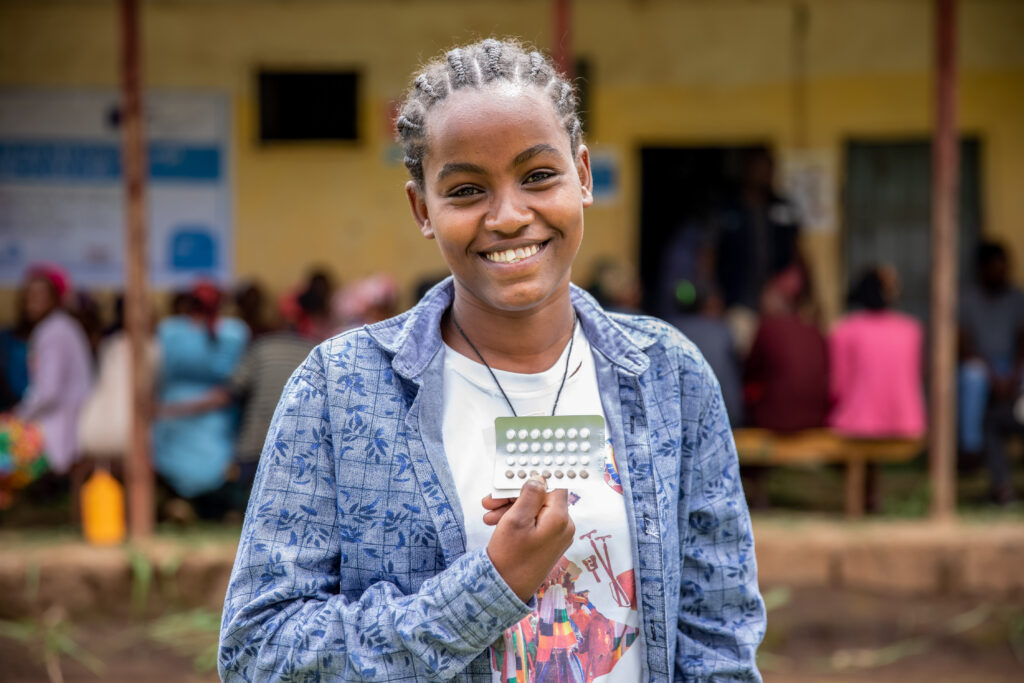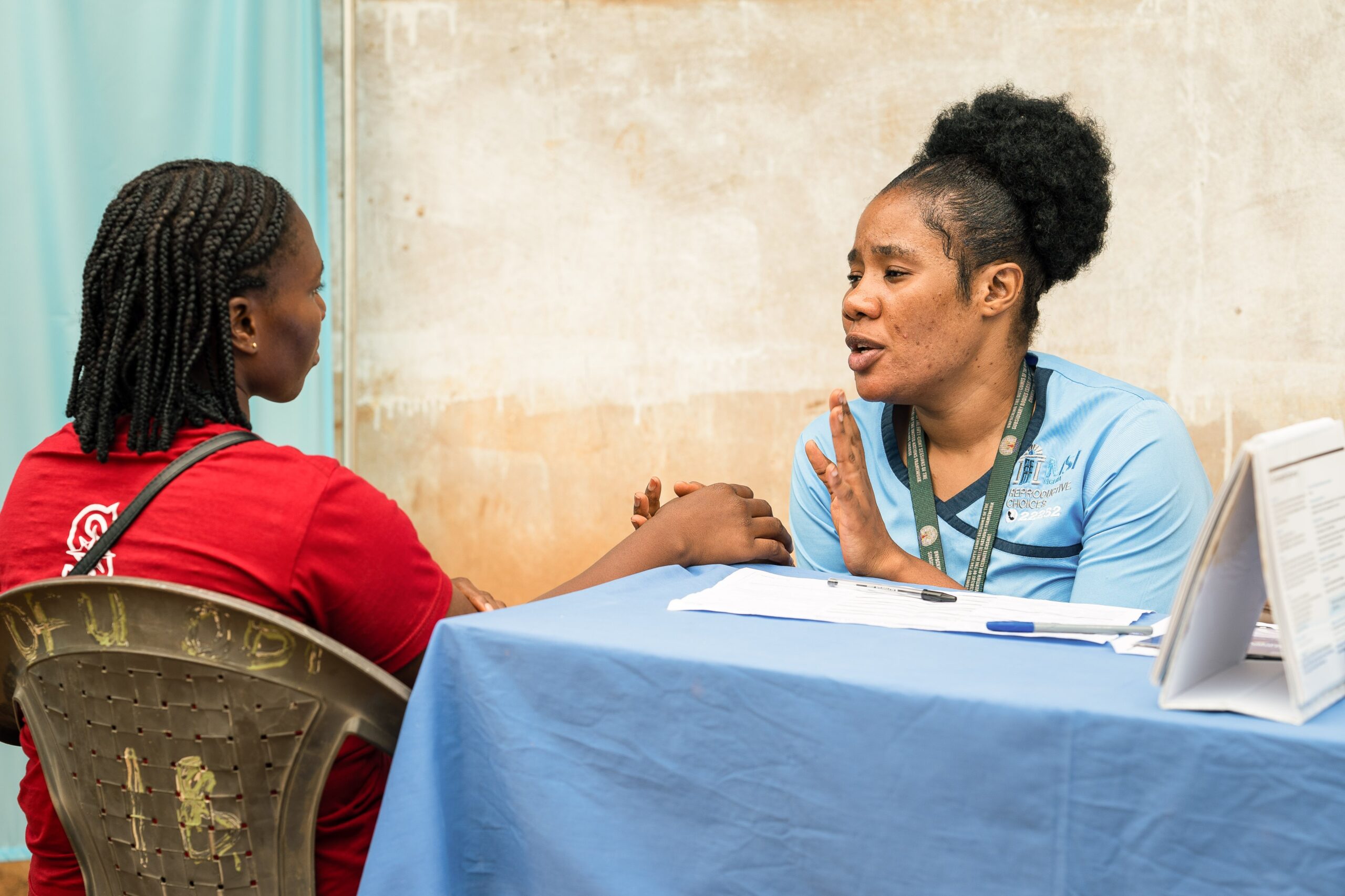
We’re celebrating 20 years since Ethiopia liberalised abortion. Since the law reform, maternal deaths have plummeted and women and girls across the nation have had greater bodily autonomy, more rights and life-changing opportunities.
How did Ethiopia go from having hospital wards filled with women suffering life-threatening complications from unsafe abortion to a nation that’s drastically reduced maternal deaths?
It’s simple: they liberalised abortion. Although not that simple – law changes never are. In fact, it took years of dedicated campaigning led by a coalition of doctors and healthcare workers from MSI and other organisations, who were seeing the public health crisis play out in front of them every day, to push abortion reform onto the agenda.
These medical professionals knew that the law, which only permitted abortion to save a woman’s life, wasn’t fit for purpose. They knew this because they saw women desperate to end unwanted pregnancies ingesting bleach or inserting sharp sticks into their bodies, developing sepsis from unsafe abortion, dying in hospital corridors full of other women needing life-saving treatment. They knew this because unsafe abortion was contributing to a third of all maternal deaths in the country.
“I know students with unwanted pregnancies who then dropped out of school, separated from their parents and are now living a difficult life. Some tried to conduct an abortion at home using home utensils; I know some who died after doing so.” – Gadise, MSI Ethiopia healthcare provider
20 years ago today, on 9 May 2005, this coalition of advocates celebrated as Ethiopia’s law changed to expand safe and legal abortion care. The health minister at the time, Tedros Ghebreyesus – who you might recognise as the current head of the World Health Organization – coupled this legislative change with a strong focus on expanding access to abortion and contraception. They were set on turning the tide on this public health crisis. And they succeeded.
After two decades, we’ve rounded up three major impacts Ethiopia has seen:
- Many women are alive today that likely wouldn’t be without this law change.
Since the reform in 2005, maternal mortality has decreased by more than 70%. In the first fifteen years, the rate of maternal deaths dropped over three times faster compared to before 2005. Without this law reform, reducing maternal deaths would have been a lot slower and more difficult to achieve.
- Guidance and education have transformed the quality and reach of abortion care.
The Ethiopian government, seeing the immediate positive changes from the law, didn’t stop there. They worked to transform the health system, ensuring the use of WHO-recommended guidance to increase access to sexual and reproductive healthcare services, and consistently improving medical guidelines on abortion.
With clear guidance and government support, NGOs like MSI, Ipas, and other local organisations were able to freely go into communities across the country to educate people on their choices and the range of sexual and reproductive health services available to them. We’ve also held ‘abortion values’ training with healthcare providers to bolster non-judgemental, unbiased care.
- Contraception has become more accessible.
Alongside this abortion reform has been a dedicated effort to expand access to contraception– to ensure women have a full range of informed choices. MSI and our partner organisations have worked closely with government health providers to reach people in remote regions with contraceptive choices. The rate of people using contraception (mCPR) has nearly tripled, increasing from 9.7% to over 28.1%. The most significant growth in the number of women choosing to use contraception has been among those aged 15-29 and those living in rural areas.
And with the choice to delay or avoid pregnancy, women and girls in Ethiopia have gained more control over their lives – whether that’s to finish school, start a business, take on a leadership role, gain financial independence, or simply have agency to do whatever they choose.

Despite the incredible life-saving, data-backed impacts the nation has experienced, there are still people determined to reverse the law and deny people their right to abortion. Recently anti-choice groups have been trying to leverage the US court decision to overturn abortion rights as justification for Ethiopia to do the same and, emboldened by a global trending attack on reproductive rights, their chorus has been growing.
You can find anti-abortion groups in Ethiopia spreading misinformation about abortion, publicly attacking MSI and naming our team members, shaming women entering our clinic in Addis Ababa and circling the clinic in a taxi with a sign saying “pray to end all abortions” nearly every day.
“It looks like nothing is happening, but they are strongly working under the surface. They are targeting politicians, decision-makers, safe abortion practitioners – they are trying to cripple the system.” – Abebe Shibru, MSI Ethiopia’s country director
It reminds us that laws and rights can be taken away. So it’s critical that we not only celebrate an anniversary of a law like this but continue to showcase the strong evidence and stories that supports its survival.
Our MSI Ethiopia team and partners across the country continue to boldly advocate to safeguard women’s abortion rights and expand access even further. Because, as our client Kidist puts it: “It is good for women and girls. If these services continue, they can pursue their dreams and reach their goals.”









